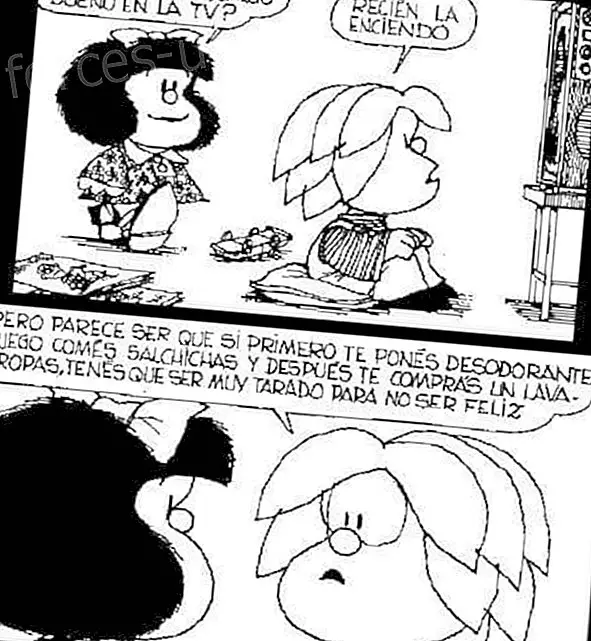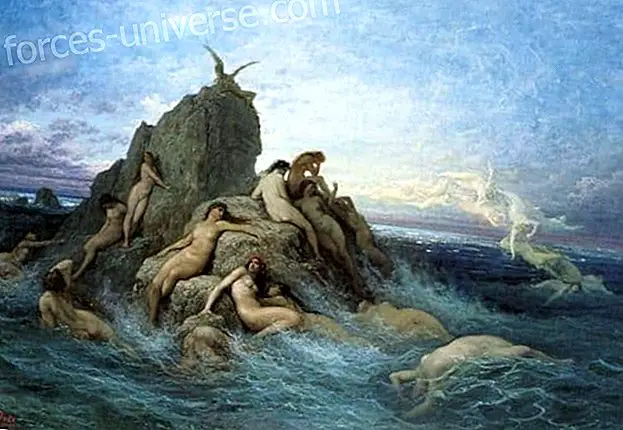If you accept what the newspapers say about aging, it seems that it is the worst thing that can happen to a human being. And for society as a whole, an aging population is perceived as a disaster. Crowded nursing homes, unsustainable health care, dementia, and general deterioration, is what we associate with aging.
We all grow old. With every second that passes we lose a little youth. It is a natural process to which all living creatures are subject. How do we come to detest such a natural process? Is there anything wrong in nature? Or is there something wrong with us about our way of thinking about aging?
How do older adults really feel about their 'dreaded' old age? Scientific research that measures happiness with respect to age shows a U-shaped curve. Young and older people are the happiest. For half of life they are more likely not to be as happy as in their youth. Research shows that older people are somewhat happier than young people. How is it possible? How can it be that although aging is associated with so many problems, people usually begin to feel happy anyway? Let us examine the life cycle of a human being from a spiritual perspective.
The birth: the loss of ourselvesFrom a spiritual point of view, to be born is to dive into matter. We leave the kingdom of the soul, an atmosphere of joy and peace. In the realm of the soul, the restrictions of time and space, and the feeling of separation we experience on earth, do not exist. Freedom is something natural. Moreover, everything around us radiates beauty, love and harmony: fear and suffering are absent. Despite this, at some point we accept the invitation of Mother Earth to be born as a human being. With each birth we begin a long process of descent into and connection with the physical atmosphere. In ancient literature, the birth of the incarnate soul is called "the chaining of the soul." The soul lands in this restrictive, dense realm of matter, in which each being seems separated from the others. The soul has trouble maintaining its natural vibration in this atmosphere; It does not belong here, and can survive only by retiring regularly. This retreat is what we call sleep and is essential not only for the body, but for the spirit.
Although birth marks the beginning of a new incarnation, the process of soul descent is not yet over. A subsequent decline continues until around the age of forty. Around that time, the decline in matter has reached its peak: as an adult you fully inhabit the realm of matter and human society. From the perspective of their soul, they are now at maximum distance from their source, the celestial kingdom from which they came. At the deepest point of the incarnation, the distance to its origin is the greatest. During childhood, the link with the original sphere of the soul is still strong. Children are often intuitive, spontaneously happy, and totally absorbed in the moment, these qualities are natural to the soul. Enjoying and exploring life in a playful and natural way is natural for the child, as well as for the soul. Unfortunately, our society has been dominated by a misrepresented, masculine notion of spirituality that does not recognize these qualities as spiritual, but rather as signs of immaturity. This heavy and serious portrait of spirituality is not actively derived from the original Christianity. In the Bible there are still traces of the soul's perspective. In Mark 10:14, for example, Jesus says: "Let the children come to me, do not stop them, for theirs is the kingdom of God."
Puberty: the descentBefore adulthood arrives there is a transitional phase of puberty, followed by young adulthood. Consciousness descends deeper into the material atmosphere; the distance to our source is increased. The natural happiness and self confidence of childhood is lost. Doubts and fears arise, nothing is taken for granted anymore. There will be rebellion and uncertainty. Resistance usually focuses on the surroundings: parents, school, or society in general - all of these are normally under scrutiny. Unconsciously, they are blamed for the loss felt by the teenager and the young adult, but essentially, their rebellion is directed against internal development: the deepest descent into the earthly kingdom and an even greater departure from the Source.
In the realm of the soul, having a unique place within the totality is natural. You do not doubt your right to exist and intuitively feel that your role is in the broader scheme of things. The knowledge that the cosmos is not complete without you, that you are an integral part of the larger group, makes you feel more secure and cared for. At puberty, this recognition is lost and results in an identity crisis. This crisis can be so overwhelming that young people become addicted to drugs or alcohol, and in some cases even commit suicide. Such acts of despair often originate from a deep desire to restore the connection with the soul.
Fortunately, however, resistance is not the only characteristic of this period. Puberty and adolescence are also a time when many aspects of earthly life are explored with enthusiasm and curiosity. We can be interested in nature, in music, in literature, or explore new and provocative ideas. Interest in others increases: we fall in love for the first time. Perhaps most importantly, we begin to feel our own originality, our individuality. Each soul is unique and brings its own seeds to the earth, seeds that germinate during childhood and sprout from the earth during adolescence. Often during this phase in life, original thoughts and feelings emerge that will have a long-term impact on your future and take a definite form of adulthood.
If all goes well, the loss of the child coincides with a period of rediscovery of who they are, independent of their parents and their upbringing. That rediscovery assures them that, in the long term, the rebellion ceases and the current Life will take them to new and exciting places. The most valuable gift you can give someone during puberty and young adulthood is trust. Be confident that there is a path and a place for them in this confusing world regardless of how different they may seem, or their apparent inability to fit. It is precisely their originality, their individuality, that the world needs and that contains the unique contribution of their soul.
Adulthood: the low point of our livesAdulthood, the highest physical point of life, is from the spiritual perspective the low point of life. The distance to the soul realm from our soul is now the greatest. Now we are at the most distant point of our spiritual origin. We are fully immersed in the material world and have identified with our human personality and our achievements. During this phase, humans on average are the most unhappy. The physical world with its laws and restrictions is now experienced as the only reality. There is a lot of concern about money and property, social status and hard work. This fixation causes people to forget themselves even more. The identification with the material realm in adulthood is so strong sometimes that one tends to feel that this is all it is, and that life revolves around these issues. Spiritual beliefs may exist, but they often derive from traditional religions that are based primarily on fear and dogma. Traditional religions have a distorted image of spirituality and sometimes do more harm than good. The most important thing that an adult can achieve from a spiritual perspective is to take care of the seeds that he or she has brought to the earth as souls allowing them to become beautiful flowers. This is our true mission, and the one that can only be accomplished by staying true to ourselves, not allowing us to be dragged by the pressures and rules of society.
Often this mission fails. In adulthood, the ideals of adolescence and puberty and the wishes and dreams of childhood are seen as impossible to achieve and naive. After all, they don't fit in what society expects and considers realistic. Authentic forms of self-expression that are still there can be branded as selfish, irresponsible or even insane. "Act normally, behave like a responsible adult." We have to fit into the social mold or we don't belong. Work 40 hours a week and take three weeks of annual vacations. I remember the sadness I felt the day I entered kindergarten. At the age of four, I could already feel what was planned in advance for me: years of school and then work. I wondered when I would be free again. At the end of elementary school, I was asked during a test what I wanted to be later in life and my answer was “rentier”. I wanted to be free again, I didn't want to be forced into a system what I was told to do and what not.
Fortunately during my adult life I found a part-time job that allowed me to work no more than three days a week. Other people thought it was peculiar that I, an adult man, had no career and little ambition, and preferred to be in nature, read books and have philosophical conversations with my friends. Not until my forties I understood that it was acceptable and still possible to be that different. I turned my hobbies (thinking about philosophy and spirituality, practicing hypnotherapy) into work. Eventually, I quit my job part time. I discovered that I could be free, do the things that I liked and that I could truly make a living doing them. The key was trust: to have faith in the original and unique gifts that I carried within my soul and to trust that the Earth would accept and compensate me by sharing these gifts. With that understanding, I began the "ascending" path, the way back to my spiritual nature.
Aging: the "ascending" path againWhen we age we begin to ascend back to the soul. The low point being fully embodied and identified with the material realm is over. We can let go of this biased approach and sometimes we are urged to do so because of the challenges we face in life, or by confronting the increased fragility of our bodies. We go up again eventually back to the Source. The natural movement of aging is growth towards light, identified with the greater reality of your soul rather than with the finite and limited reality of your body and personality. Therefore, from a spiritual point of view, they become more and not less when they age: it is more susceptible to increase wisdom, trust, and joy.
A human being who ages naturally and with grace is aware that he is much more than his earthly self. Understand that your true self rises above the roles you have played in the material realm of the Earth. As the sustenance of this reality decreases, he begins to understand again who he really is: an eternal being of living light.
Unfortunately, this natural and graceful process is sometimes hindered due to very entrenched social beliefs. We live in a society in which, it is believed that physical reality is all that it is, that there is no true self beyond the earthly self and therefore aging is a bad thing. People identify completely with their physical body and personality. Aging is associated with loss and decline, with a movement towards nothing. Many people therefore oppose this aging process and this resistance interrupts the natural ascent towards the soul and towards more light and joy. Resisting the aging process creates a self-realized prophecy: what you fear becomes true because you fear it. Resistance makes them cling to the physical dimension and the body. This clinging is a denial and a departure from your inner light, and has a number of tragic consequences for the aging human.
First, the physical body could benefit greatly from a connection with the soul felt more deeply. When the person connects with the soul realm during aging, the energy of the spiritual kingdom flows more strongly throughout the body. The body rises and revitalizes through the light and joy of this kingdom and gains in additional power and health. The aches of old age have less effect on this. But if consciousness does not focus on what is beyond the earthly and desperately clings to the physical, the body cannot take advantage of this additional energy. This increases the risk of health problems.
Second, in a society as a whole, older people could play an important role: radiating spiritual perception and wisdom towards younger generations that are focused on the physical realm and the demands of society. Older people can, through their life experiences and their increasing connection with the dimension of the soul, have a positive influence on the younger ones by sharing their light, their perceptions and their compassion. They can offer a broader perspective on things and listen patiently. By nature everyone feels more wisdom, peace and serenity in older people.
The positive influence of the elderly can be expressed in various ways: from a spiritually influential personality to a wise grandmother whom the family turns to for advice. There are also writers, artists and therapists who at an advanced age do an exceptional job and inspire without knowing many others. Older people are the bridge between the realm of timelessness and the practical world of everyday life. A society in which the value of elders is not recognized is a society that has lost its connection with the spiritual. Then we see a society that runs wild: look around.
When the aging human cannot occupy his natural place in society, both society and the elderly suffer. The life of an older adult tends to be lonely, small and boring. It is not tragic that just at the age at which a human being is ideally prepared for spiritual work, they are relegated to one side. Have you heard of a writer or artist who has ceased to be on his 65th birthday? Imagine how many books and works of art would have been lost if these people had to abide by the clumsy rule of stopping work at age 65. Right now I am reading the memoirs of Claude Lanzamann, born in 1925, director of the film Shoah. On each page I am amazed and admire the wisdom, intellectual capacity and wealth of this book. According to the standards of our society, this man must have retired more than twenty years ago and did nothing else! Absurd. Older adults dwarf and dwarf themselves: physical and mental degeneration are the result.

To find a natural, graceful way to grow old in our society, which sustains such negative images of old age, a radical change of thought is required. Here are some suggestions.
Forget everything society tells you about aging and being older adults
The vision of society regarding aging is not spiritual. He does not see human beings as bearers of an immortal soul, but as physical organisms that gradually deteriorate and become useless. But every human being who experiences life with an open heart and an open mind will understand that there is more to it than this in life. Life has a spiritual dimension and this dimension is much more important than physics. As an older adult you can connect more easily with that dimension and draw inspiration and strength from it.
Understand that nothing is ever lostNothing and nobody is lost at night, everything of value remains. One of the first things we found after dying and having access to the other side, is that everything is still there. Family members and friends, the world of our children, our most beloved experiences - everything is still there. And we can connect with our loved ones or relive some experiences if we wish - everything is there for us. By flowing with life, and yielding to the aging process, we reach the timeless dimension where everything that has real substance is preserved. If we dare to let go, we can receive glimpses of this dimension. Then we understand internally that nothing is lost and this internal knowledge brings us peace and equanimity.
Go out into the world. This is the time to let your light shine. I will serve society and its peers.
Younger people sometimes do not understand the elderly. How can they be so open, peaceful and happy if they confront daily the loss of health and skills and the approaching death? The answer is that the older adult has an internal knowledge that the younger ones do not have. Older people are usually marked by life experiences that have made them more open and more kind than the average young person. An older person has had to let go and give up often. From here grows an equanimity that brings peace and happiness . The older person provides immense service to society and its fellow youth if they are aware of their gifts and share them. Take an honest look at what the world needs today: new phones, faster cars? No, more wisdom, calm and peace. And isn't that what older adults have to offer?
Look at the relative role people play. Do not take it very seriously.
The life is a game. People l ase adults- who are completely involved in the game assume their role too seriously . Do not allow yourself to associate much with the game; Keep some distance. See through this; Watch the actors play their role. Seeing human society as a game that people play, makes it easy to shed the standards and expectations in question. It makes it easier to get rid of the roles you played as parents, bosses or employees, etc., and open up to a new chapter in their lives.
Put confidence in your life. Trust that life will bring you new experiences, new roles that fit who you are now, not the person you were. By shedding the past and surrendering they open to the new, and can even discover different facets of themselves. If they cling to something that already suits us, a feeling of emptiness and loss will arise. Trust life and let go.
Do not identify more with your body and with the physical world, but with your conscience.
Identifying with your role in the physical and social world is fun and interesting as long as you know it is a game. For a while, they are completely absorbed in it and then release it again. That way they go through a lot of experiences and their soul is enriched with that. It is natural that during a certain period of their life they identify with the roles they play, but it is also natural that they feel at some point that it is time to let go and understand who they are beyond that role. This is supposed to happen as they get older.
Imagine driving a car. If you think you are the car, it will be terrible when something happens to it. If they understand that they are the driver, it is not so bad: they know they are not the car and can get out of it.
Stand in front of the mirror and look at your reflection: see your aging face. But behind his face, his eyes, there is something that does not age and is timeless: his conscience. Feel it . By identifying with your consciousness, and not with your aging body, you flow with the natural flow of aging. The connection with who they really are, with the dimension of their soul is deepened. This perception makes them shine with wisdom and peace.
The blessings of agingThere is nothing wrong with an aging population. For starters, older people on average are happier, so an aging population means that society as a whole will be happier.
Proportional growth in the aging population also means an end to the disastrous population explosion that has caused the death of so many animal and plant species. We are moving towards a future with fewer people on Earth and therefore humanity and nature will be in greater balance.
As a result of the increasing number of older people, it will be impossible to ignore and belittle them. Society will be obliged to give seniors their rightful place. And the elders themselves will be challenged to enter that place. The absurd logic will end, since from the spiritual point of view, it withdraws from the society people who are in their most fertile age. This means that the elders will no longer have to hide, but allow their light to radiate.
Older adults will bring peace, wisdom and tranquility to society. Humanity has lost its way and is very much in need of connection with the timeless reality of the soul. A society that takes natural blessings and the gifts of aging seriously will be a society that focuses on harmony between human beings and harmony with Mother Earth, rather than pursuing the success and exploitation of our planet. It will also be a society in which there will be less fear of death and old age. Aging will be perceived as a graceful process and as a gradual return to the source of Light from which we all come.
Translation: Fara González
Source: http://jeshua.net
A spiritual perspective on aging






